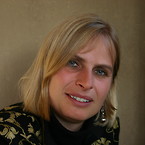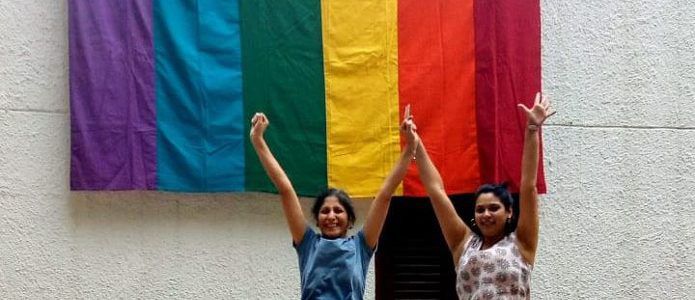India's Supreme Court legalizes homosexual behavior after over a hundred years. It's a groundbreaking ruling.
India's Supreme Court struck down Paragraph 337, which had its origins in the British colonial period and criminalized "sexual intercourse against the nature's order," in a groundbreaking verdict. The chief justice, Dipak Mishra, explained the decision, saying the paragraph was "irrational, indefensible and clearly arbitrary." In doing so, the court ended a decades-long fight for LGBTI rights in India, which had led to differing judicial decisions. In 2009, Delhi's highest court ruled that a ban on "consensual sex among homosexuals" infringed on their civil rights. However this ruling was overturned by the Supreme Court in 2013, their reasoning being that this question had to be resolved by parliament, rather than in the courts. "This ruling was wrong, illegal and misinterpreted the tenets of the constitution," says Colin Gonsalves, one of the lawyers whose petition just succeeded in passing. The activists benefited from the fact that the supreme court had agreed in another groundbreaking ruling on data security last year that all citizens have a "right to privacy." This was now successfully used to argue the same for what happens in the bedroom or elsewhere. According to the ruling, that's an essential component of privacy." Meenakshi Ganguly, the South Asian director of Human Rights Watch, says, "The ruling is incredibly important." "The continuous fear we had of Paragraph 377 won't be there for the next generation," says Yashwinder Singh from the organization, Humsafar Trust, which campaigns for LBGTI rights in Mumbai.
Albeit the situation for homosexuals in India was never compatible to the persecution that took place in West Germany under Paragraph 175. Before it was abolished in 1994, around 50,000 people, primarily gay men, were sentenced to years in prison. In India, by contrast, nobody had ever been sent to prison for their sexual orientation.
"I'm gay and I've never been discriminated against in my entire life. There's no active homophobia in India," says Abhijit Iyer-Mitra. The 42-year-old from Chennai, who works in Delhi for the Institute of Peace and Conflict Studies (IPCS), explained that the only rulings based on Paragraph 377 since 1880 had to do with cases of rape. "Up to now, this was the only argument a man had if he had been raped. All other laws relating to rape only applied to women. "
"India was always liberal, when it came to sexual differences," agrees Shashi Tharoor, from the oppositional Congress Party. According to the parliament member and writer from Kerala, "There's no prejudice against sexual deviation in our mythology or traditions." The Christian idea of sexual intercourse only being justified for procreation was unknown in India - until the British colonizers enacted their Victorian sexual morality. This influenced Indian society for 150 years, when many traditions and religions were mixing in any case.
Tharoor is one of the few politicians who actively campaigned for the abolition of Paragraph 377. Most politicians were opportunistic, since the gay and lesbian demographic didn't seem big enough to risk alienating religiously conservative constituents. Tharoor even accused the ruling Hindu-nationalist BJP of misinterpreting their own Hindu traditions.
A historic day for people who believe in equal rights for all
Bollywood star Aamir Khan
Nevertheless, this was a campaign bluster, since his own Congress Party never abolished Paragraph 377 in over 40 years of majority rule. "No government has been especially helpful, that's why we turned to the courts, says Anjali Gopalan from the Naz Foundation, which was behind the campaigns against Paragraph 377.
The ruling also shows India's societal shift, which politics lags behind. "This is a historic day for people who believe in equal rights for all," said Bollywood star Aamir Khan in a Tweet. "The court did its duty, now we must do ours."
Britta Petersin is a senior fellow at the Observer Research Foundation (ORF), a think tank in New Delhi. She's been living in South Asia for 15 years. She was previously a correspondent for the Financial Times Deutschland in Afghanistan and India as well as the bureau chief of the Heinrich Böll Stiftung in Pakistan.
Translation: Michael Ladner Copyright: This article was first printed on 6/9/18 in taz and appears here in English translation with the author's kind permission. September 2018
Original

